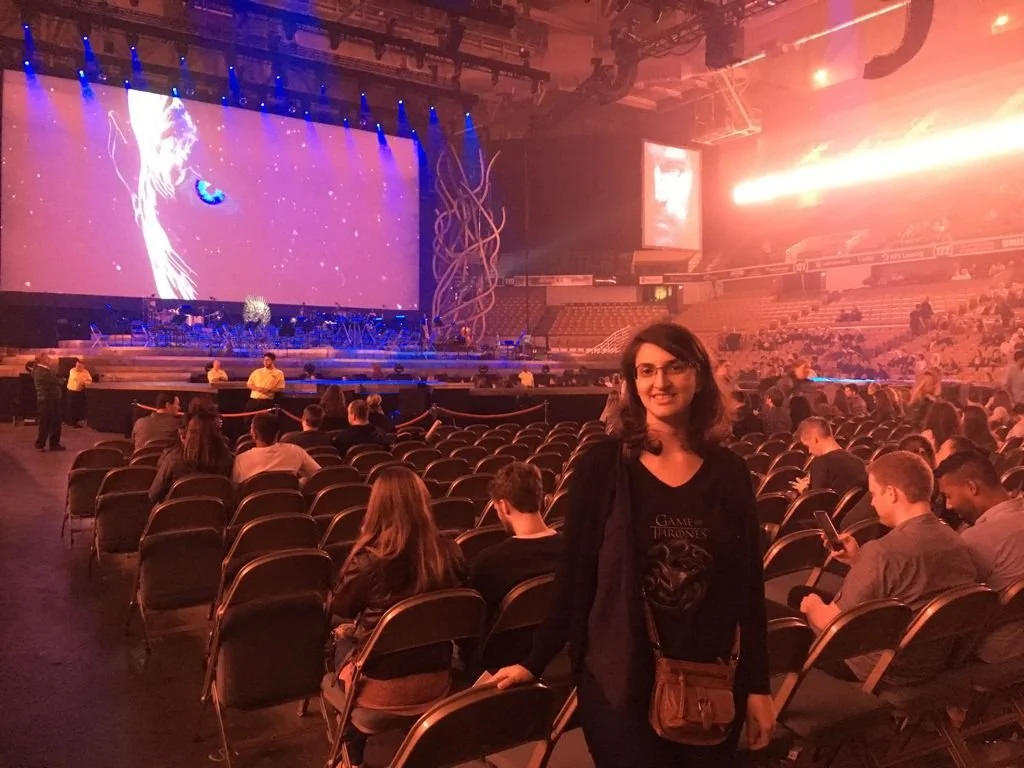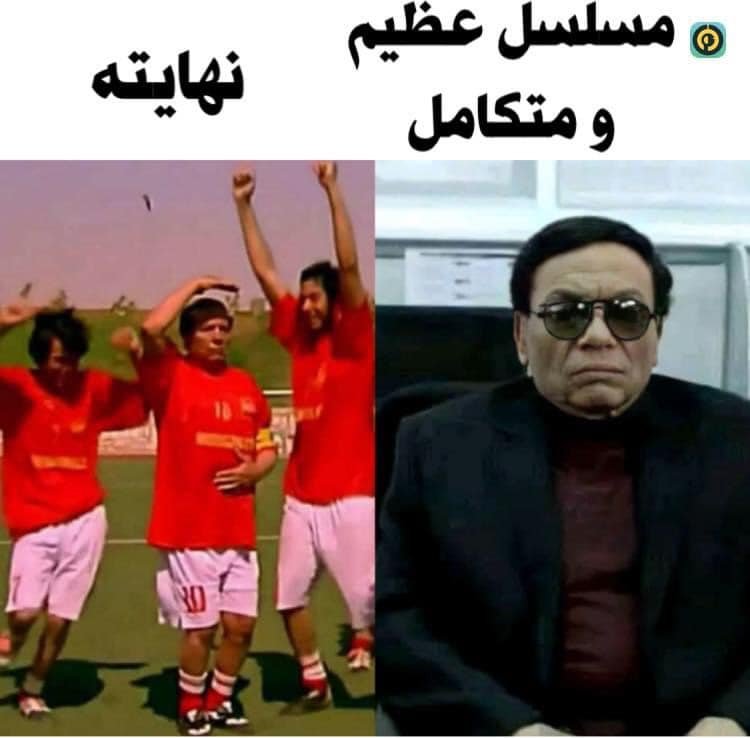Global Fandom Jamboree: Katty Alhayek (Syria)
/
I encountered the field of fan studies for the first time in 2015, at a difficult political moment in my life as a displaced woman scholar from Syria in the United States. That moment coincided with the rise of Trump and worsening conditions of war and displacement in Syria. I was starting my PhD training at the University of Massachusetts, Amherst, and felt that I had finally found, through cultural studies, theoretical tools with which I could describe my politically charged experiences as a fan of television and the experiences of other Arabic-speaking fans that I was witnessing in online communities, mainly on Facebook. I began exploring questions of how fans’ cultural participation can contribute to our understating of non-traditional political participation.
Since then, I have studied two groups of fans: the Arab fans of Game of Thrones; and displaced fans of Syrian TV drama serials. Fandom in the Arab world is an understudied aspect of media globalization, generally studied only indirectly. For instance, scholars have previously taken up questions of nationalism and modernity by studying the popularity of Arabic popular television series such the Syrian show Bab Al-Hara i.e.: The Gate to the Neighborhood (Al-Ghazzi, 2013) and the Egyptian show Al-Helmiya Nights i.e.: The Nights of Hilmiyya Neighborhood (Abu-Lughod, 2005). Others have explored the appeal of Arabic-dubbed Mexican and Turkish television serials as providing Arab audiences with counter-hegemonic alternatives to the American domination of TV programming internationally (Kraidy and Al-Ghazzi, 2013; Kraidy,1999). By contrast, my work focuses on fans of local and international television as an interpretive community (Radway, 1984; Jenkins, 1992), exploring the dialogic, affective, and collaborative articulations of fans’ cultural and political formations through media and popular culture. My projects are based on online interviews with fans as well as textual analyses of their posts.
Figure 1 Katty Alhayek arrived at Game of Thrones Live Concert Experience featuring composer Ramin Djawadi at the DCU Center in Worcester, Massachusetts, United States (September 29, 2018).
My first research project on fandom engaged with transnational fan objects and practices around Game of Thrones (GoT) in the Arab world (Alhayek, 2017). I have been a fan of GoT since 2012, the year I arrived at the United States from Syria and started a Master’s program at Ohio University. I found myself attached to the world of GoT and using its characters' motives, journeys, and agendas to explain to my American colleagues the real-world trajectory and complexity of the Syrian conflict. I got attached to the Stark family’s experiences of displacement, Daenerys' longing for a homeland, and Tyrion’s struggle with his ambiguous position of marginality and privilege. I was drawn to the American world of GoT fandom and obsessed with fans' speculative fiction. However, my ethnicity as a Syrian and native speaker of Arabic made me yearn to find an Arabic-speaking fan community of GoT. In 2014, I found just such a community, and a massive one, on Facebook. As I interacted with the “Game of Thrones–Official Arabic Page” (GoT-OAP), I became interested in the cultural production through which these Arab fans shared their experience of cultural consumption. As of 2016, the page had over 240,000 Arab followers, and was the largest and oldest of its kind among competing similar pages.
In this project, I noticed that the Arab fans of this show are different from the above-mentioned audiences of the popular Arabic, Mexican, and Turkish serials. I argue that GoT Arab audiences are part of the global fandom of quality television or what is referred to as “Prestige TV.” This type of TV, mainly, targets global elite audiences who are highly educated, affluent, and male (Hassler-Forest, 2014). The characteristics of the Arab fans of GoT I worked with reflect this observation. In fact, 80% of the GoT-OAP followers were men; many of whom were educated, highly skilled, and tech-savvy professionals. As a woman fan, I recognize that quality television shows like GoT still cater to women viewers by presenting diverse, strong women characters like Arya, Brienne, Cersei, Daenerys, Sansa, and Olenna Tyrell. Of course, in a predominantly Western series all these women are white. Thus in this project, I showed how Arab fans responded to the whiteness and Eurocentrism of GoT and their sense of racial difference by producing hybrid posts and memes that reflect their local contexts and lived experiences. For example, one of GoT-OAP administrators’ favorite characters is Arya Stark. In figure 2, the fans imagine a conversation between George RR Martin and his wife by choosing three sequential moments from an Egyptian show. An Egyptian actress and actor are imagined as Martin and his wife in an argument over the destiny of Arya in which the wife is threatening Martin to not kill off Arya unless he wants to sleep on the couch. This meme was inspired by a true anecdote of Martin’s wife fondness for Arya and the consequences of killing Arya off on the couple’s marriage (Harvey-Jenner, 2015).
Figure 2 An imagined argument between George RR Martin and his wife.
Other posts, such as figure 3, use the show’s imagery for political satire, in this case ridiculing Abdel Fattah el-Sisi, Egypt’s current president. In the post below, el-Sisi is compared to Daenerys, represented as a “savior" while being in fact a ruthless dictator.
Figure 3 a hybrid post that compares el-Sisi with Daenerys.
GoT fandom in the Arab World continues through Facebook communities like “House of the Dragon Arab Fans” which has over 158.3K members (Figure 4).
Figure 4 A screenshot of “House of the Dragon Arab Fans” group on Facebook as of Sept 14, 2021.
While waiting for the upcoming prequel, House of the Dragon, which is scheduled to air in August 2022, Arab fans in this Facebook community express their nostalgic feelings to the time when GoT was airing, their unhappiness with how GoT ended (Figure 5), and their excitement and high expectations of the upcoming prequel.
Figure 5 In this meme, Arab fans use Egyptian comedian and actor Adel Imam to channel their unpleasant feelings about the GoT ending. The meme conveys that it’s a perfect and great series, but its ending was substandard.
My second project on fandom is about how displaced Syrian audiences challenge the harsh conditions they live in to use social media to participate in conversations with creators of TV drama that resemble their lived experiences of war and displacement (Alhayek, 2020). When we think about the Syrian war and subsequent refugee crisis, currently the largest displacement crisis in the world (UNHCR, 2021), we don’t tend to imagine these displaced populations as fans and active audiences of entertainment. However, since 2013 I have observed the interactive trend on Facebook, of befriending, specifically during Ramadan, writers of acclaimed Syrian TV drama serials such as the 2013 Manbar Al Mota (Platform of the dead); the 2014 series Qalam Humra (Lipstick); and the 2015 Ghadan Naltaqi (We’ll Meet Tomorrow).
Figure 6 A fan praise of Ghadan Naltaqi on the Facebook page of the show’s creator Iyad Abou Chamat on November, 15, 2015.
From the early 1990s until the war, the Syrian drama industry flourished and was known for the high quality of its content and production (Kraidy, 2006). Many of the Syrian drama creators became known for their commitment to social and political transformation, exposing structural inequalities and the corruption of the ruling class in Arab societies (Salamandra, 2011). However, after the 2011-Syrian Uprising and subsequent war, the quantity and quality of TV drama declined significantly. Nevertheless, some high-quality shows continued to be produced, for instance, Ghadan Naltaqi. In my research on fan engagement with that show, I explore questions like how such post-2011 top-quality shows (albeit rare) symbolize for the fans the continuity of the respected tradition of Syrian drama’s critiques of power structures. It also provides fans with cultural references that invoke their sense of dignity and pride and alleviate their feelings of loss and humiliation (Zeno, 2017). I demonstrate that the interactive, emotional relationship between fans and drama creators serve as political interventions to cope with a highly polarizing conflict and create healing spaces at a critical remove from violent media discourses.
Going forward, I hope to expand my research on fandom of quality television, race and class. I want to think more about the definition of quality television in the local context of Syria. I want to explore how fandom of local quality television like Ghadan Naltaqi is different or similar to fandom of global quality television like Game of Thrones. I intend to analyze the expansion of streaming media like Netflix and HBO Go to attract audiences in the Arab world, and what that suggests about relations of class, race, education, gender, sexuality, and nation in fans’ online engagement with Western streaming media.
Biography
Katty Alhayek is an Assistant Professor in the School of Professional Communication at Ryerson University (renaming in process) in Canada. She holds a Ph.D. in Communication from the University of Massachusetts Amherst with a graduate certificate in Advanced Feminist Studies, and Master's degrees in International Affairs and Media Studies from Ohio University in the United States. Her scholarship centers around themes of marginality, gender, intersectionality, displacement, media audiences and fandom in a transnational context. Her publications include articles in the International Journal of Communication; Feminist Media Studies; Gender, Technology and Development; andParticipations: Journal of Audience and Reception Studies.
References
Abu-Lughod, L. (2005). Dramas of nationhood: The politics of television in Egypt. Chicago, IL: University of Chicago Press.
Al-Ghazzi, O. (2013). Nation as neighborhood: How Bab al-Hara dramatized Syrian identity. Media, Culture & Society, 35(5), 586‒601.
Alhayek, K. (2020). Watching television while forcibly displaced: Syrian refugees as participant audiences. Participations: Journal of Audience & Reception Studies, 17(1), 8-28.
Alhayek, K. (2017). ‘Emotional Realism, Affective Labor, and Politics in the Arab Fandom of Game of Thrones.’ International Journal of Communication, 11: 1-24.
Harvey-Jenner, C. (2015, July 15). The big reason Arya Stark won’t get killed off Game of Thrones any time soon. Cosmopolitan. Retrieved from https://www.cosmopolitan.com/uk/entertainment/interviews/a37208/arya-stark-maisie-williams-killed-off-game-thrones/
Hassler-Forest, D. (2014). Game of Thrones: Quality television and the cultural logic of gentrification. TV/Series,(6), 160‒170.
Jenkins, H. (1992). Textual poachers: Television fans and participatory culture. New York, NY: Routledge.
Kraidy, M. M. (1999). The global, the local, and the hybrid: A native ethnography of glocalization. Critical Studies in Mass Communication, 16(4), 456‒476.
Kraidy, M. M., & Al-Ghazzi, O. (2013). Neo-Ottoman cool: Turkish popular culture in the Arab public sphere. Popular Communication, 11(1), 17‒29.
Kraidy, M. M. (2006.) ‘Syria: Media Reform and Its Limitations.’ Arab Reform Bulletin 4, no. 4.http://carnegieendowment.org/files/kraidy_may06.pdf
Radway, J. (1984). Reading the romance: Women, patriarchy, and popular culture. Chapel Hill, NC: The University of North Carolina Press.
Salamandra, C. (2011.) ‘Arab Television Drama Production in the Satellite Era.’ In Soap Operas and Telenovelas in the Digital Age, edited by Diana Isabel Arredondo Ríos and Mari Castañeda, 275-290. New York: Peter Lang.
UNHCR. (February 5, 2021). Syria Refugee Crisis Explained. UNHCR. Retrieved fromhttps://www.unrefugees.org/news/syria-refugee-crisis-explained/
Zeno, B. (2017.) ‘Dignity and Humiliation: Identity Formation among Syrian Refugees.’ Middle East Law and Governance 9, no. 3: 282-297.






